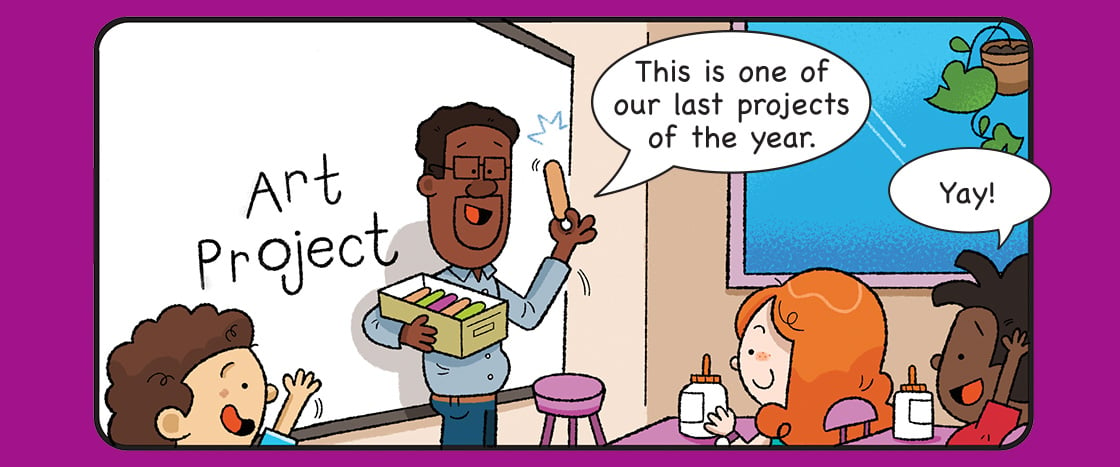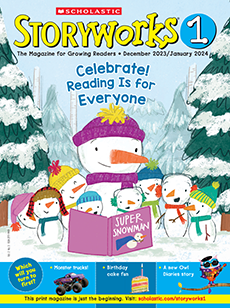
Art By Elio
It Is Not Summer Yet
By Katie Mach
From the May/June 2024 Issue
Learning Objective: Students will discuss the importance of focusing and practicing self-regulation at school.
About the Story
Social and Life Skills Focus
Self-regulation
English Language Arts Focus
Genres of Literature
Step-by-Step Lesson Plan
Implementation
- Morning Meeting: If you use your morning meeting to build your classroom community, this mini graphic is a great discussion prompt.
- Whole Group: Once you’ve read and discussed the story together, have children act out the different parts.
Pairings and Text Connections
- From the Storyworks archive: “Sticky Situation: When Is It My Turn?” (October/November 2022); “Sticky Situation: Teacher, Teacher!” (February 2024)
- Suggested books: Focused Ninja by Mary Nhin; Waiting Is Not Easy by Mo Willems; And Then Comes Summer by Tom Brenner
Before-Reading Resources
Video: What's In a Comic? (5 minutes)
- Explore how comics use pictures, thoughts, and dialogue to tell a story.
Suggested Reading Focus
Focus and self-regulation (20 minutes)
- Ask children if they can remember a time when they had a hard time focusing on schoolwork in class. What were they thinking about? What happened? Why is it important to focus in school?
- Read the comic with expression. Check children’s comprehension as you read each panel. Children can also turn and talk to discuss what each picture tells them about the story and the characters.
- Then give children a chance to practice reading with fluency and expression. Choose volunteers for reading each part aloud.
- Discuss the Talk It Out questions as a class. Ask children to share examples from their own lives as they make connections to how the characters are feeling.
After-Reading Skills Practice
- Skills: Self-management (15 minutes)
Extension Activity
Skill: Writing (15 minutes)
- Tell students that when they are thinking about something else when they should be paying attention in class, it is called daydreaming. Usually people daydream when they are excited or have strong feelings about something. Give each student a blank piece of paper. Tell them to draw a thought bubble on the paper and fill it with words and pictures of things that they daydream about.
Text-to-Speech
